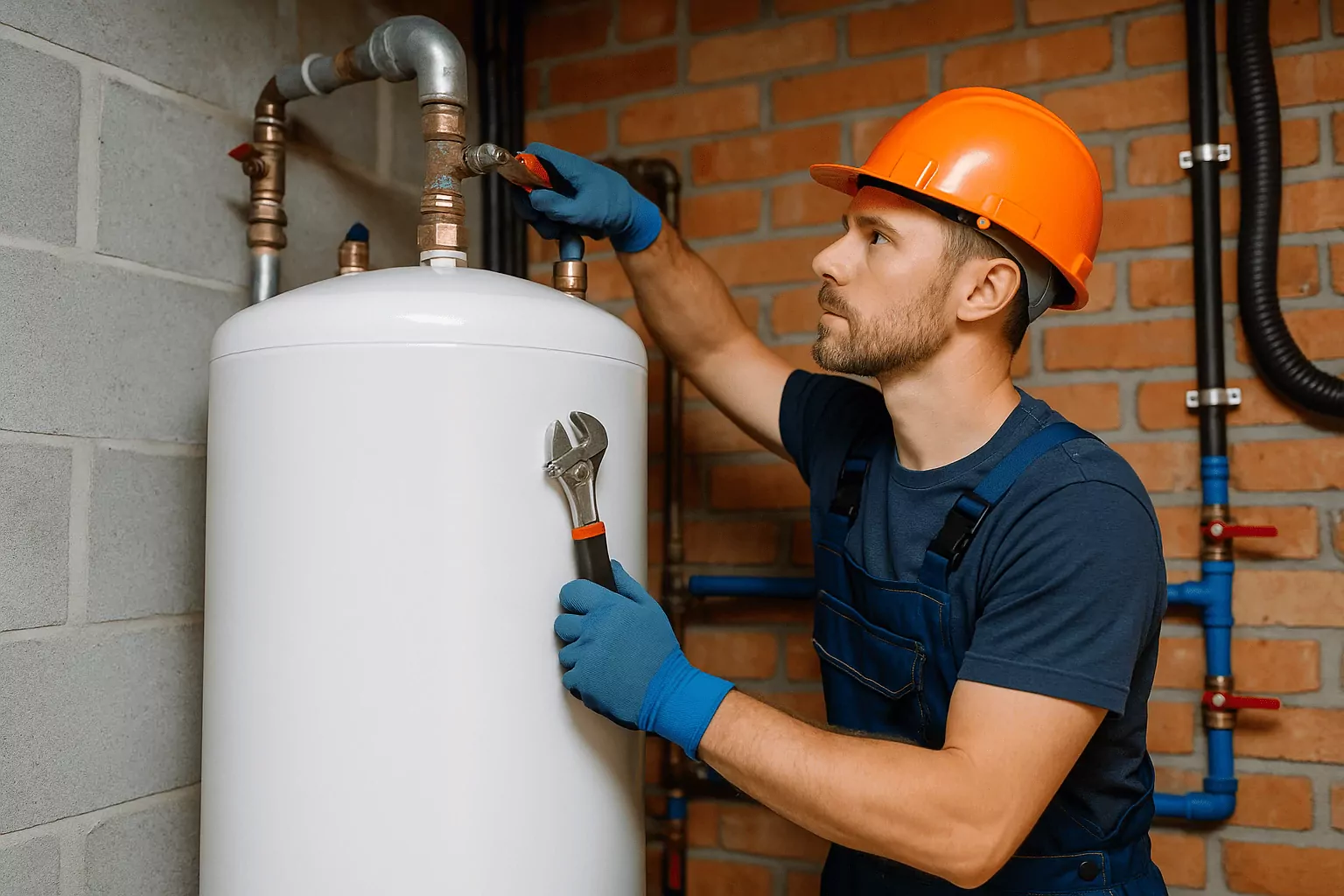Expert Tips from a Plumber for Water Heater Installation in Raleigh
Get Professional Insights on Safe and Efficient Water Heater Installation in Raleigh from Local Plumbing Experts

Installing a water heater is a significant investment for any homeowner in Raleigh. Whether you are replacing an old unit or installing a new one, understanding the process can save you time, money, and frustration. As a seasoned plumber for water heater installation Raleigh, I have encountered numerous challenges and solutions that can help you ensure a smooth installation. In this blog, I will share expert tips and insights that will guide you through the water heater installation process. From selecting the right type of heater to the actual installation, these tips will empower you to make informed decisions. Let's dive in and explore the essential steps to achieve optimal results.
1. Choosing the Right Water Heater
When it comes to water heater installation, selecting the appropriate unit is paramount. Homeowners can choose between traditional tank water heaters and modern tankless systems. Tank water heaters store a large volume of heated water, making them ideal for families that require a constant supply of hot water. On the other hand, tankless heaters provide hot water on demand, which can be more energy-efficient. Understanding your household's hot water needs will help you make the right choice.
Additionally, consider the energy efficiency ratings of the units you are evaluating. Look for the Energy Star label, which indicates that the water heater meets energy efficiency guidelines set by the U.S. Environmental Protection Agency. This can lead to significant savings on your energy bills over time.
Don't forget to consult with Raleigh plumbing experts to assess your specific needs. They can provide insights based on the size of your home, the number of occupants, and your hot water usage patterns. This personalized approach helps ensure that you select a water heater that meets your unique requirements.
2. Preparing for the Installation Process
Preparation is key to a successful water heater installation. Before the installation day, it's essential to clear the work area around the water heater to ensure easy access for the professional plumber. This will not only expedite the installation process but also minimize the risk of accidents. Remove any items that may obstruct the plumber's access, such as storage boxes or cleaning supplies.
Another crucial step is to ensure that the necessary permits are acquired. In Raleigh, certain plumbing work, including water heater installations, may require permits. Consulting with a professional can help you navigate these regulations and ensure compliance, avoiding potential fines.
Finally, gather all relevant information regarding your current water heater, including its age, model, and any issues you may have encountered. This information can assist the plumber in diagnosing any problems and determining the best course of action for your new installation.
3. The Installation Process: What to Expect
During the installation process, several critical steps will be taken to ensure everything is set up correctly. First, the plumber will disconnect the old water heater, ensuring that all utilities are safely turned off. This includes electricity or gas connections, as well as water supply lines. Safety is a top priority during this phase.
After the old unit is removed, the plumber will prepare the area for the new water heater. This includes installing any necessary mounting brackets and ensuring that the space meets local codes. Proper ventilation is crucial, especially for gas-powered units, to prevent hazardous gas buildup.
Once the area is prepared, the new water heater will be installed according to the manufacturer's specifications. This includes connecting the water supply, drainage, and power lines. After installation, the plumber will conduct a thorough check to ensure that everything is functioning correctly. This is also the time to discuss the water heater's maintenance requirements to ensure optimal performance over its lifespan.
4. Post-Installation Checks and Maintenance
After the installation is complete, it's important to conduct a few post-installation checks. Ensure that there are no leaks around the connections and that the water heater is heating properly. Monitoring the water temperature is essential; it should be set at a safe level to prevent scalding while providing adequate hot water for your needs.
Regular maintenance is vital for extending the life of your water heater. Flushing the tank annually can help remove sediment buildup, which can affect efficiency and performance. Additionally, checking the anode rod periodically can prevent corrosion and prolong the life of your water heater.
For any water heater services or repair needs, consider reaching out to a professional plumber Raleigh. They can provide ongoing maintenance and troubleshoot any issues that may arise. Establishing a relationship with a local plumber ensures that you have support when you need it most.
FAQs
What should I consider before installing a water heater?
Before installing a water heater, it's essential to evaluate your household's hot water needs. Consider the size of your family, peak usage times, and whether you prefer a tank or tankless system. Additionally, check local building codes and regulations to ensure proper installation. Consulting with a plumber for water heater installation Raleigh can provide valuable insights specific to your situation.
How long does the installation process take?
The installation process can vary depending on the type of water heater and the complexity of the installation. Generally, a straightforward installation of a tank water heater can take around 2 to 4 hours. Tankless installations may take longer due to additional modifications required. Always consult with your plumber for a more accurate estimate based on your specific circumstances.
Can I install a water heater myself?
While it may be tempting to install a water heater yourself to save on costs, it is highly recommended to hire a professional. Water heater installation involves handling gas lines, electrical connections, and local plumbing codes, which can be challenging and potentially dangerous. A qualified plumber can ensure the installation is done safely and correctly, providing peace of mind.
How often should I maintain my water heater?
Regular maintenance is crucial for extending the life of your water heater. It is advisable to flush the tank at least once a year to remove sediment buildup. Additionally, inspect the anode rod every couple of years and replace it as needed. Scheduling regular maintenance with a professional plumber Raleigh can help keep your water heater in optimal condition.
What signs indicate I need water heater repair?
Signs that your water heater may need repair include inconsistent water temperature, unusual noises, leaks, or a rusty water supply. If you notice any of these issues, it's essential to contact a professional for an assessment. Timely repairs can prevent further damage and costly replacements down the line.
Conclusion
Water heater installation is a crucial aspect of home maintenance that requires careful planning and execution. By following the expert tips provided in this blog, you can ensure a smooth and efficient installation process. From choosing the right unit to conducting post-installation checks, each step plays a vital role in achieving optimal results. If you have any questions or need assistance with your water heater installation, do not hesitate to contact us at Rosewood Plumbing today!

